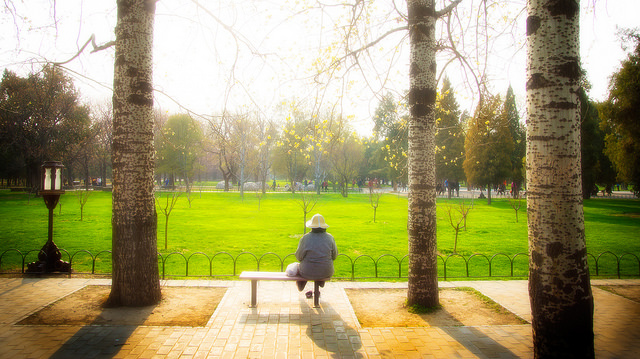This piece is a follow up to the essay, “Accidentally Childfree”.
“Do you want to be in your marriage?” She asked me, matter-of-factly.
For months I wrestled with this question, always too afraid to broach it during daylight hours. But here we were, in her bright little office, and her words flooded the room.
On that day, I did not have an answer for her.
My husband and I decided to marry when we were young, young enough to still be considered young today. We had an intimate wedding ceremony with only a few close friends and relatives. After all the formalities, we rocketed off into the married life of two, plus extended families on both sides. We both agreed that we were not going to have children during those beginning years, so for a delicious few years we enjoyed each other’s company to the fullest.
We then moved to a different continent and began navigating our way across deserted foreign turf, often accompanied by isolation as we were without our families. And in this space of newness and loneliness, of absolute twosome-ness, we welcomed the idea of more than just us.
Everyone around us was having a baby except us. We were engulfed by TV shows suggesting that at the “right” time we should start making a baby, as couples have but a small window of opportunity for conception. All the while, there was also the background chanting of religious instruction that emphasized procreation as the leading purpose of life and motherhood as the jeweled-crown of female piety. They insisted, that as uterus-holders we must have children to aggregate a congregation of devout believers who will one day grow up to dominate the world with their utter Muslim-ness.
Touted as the supreme combination of virtue and womanhood, I believed that I should strive towards attaining this peak. Being ignorant of an alternative that would offer paradise and purpose as swiftly as childbearing, I signed up for pregnancy.
And nothing happened.
On further test runs, we found out that we would not be able to have biological children. For as long as we remained together—nothing would happen.
I was stunned. Here began my scurrying for scraps to soothe a plague of rising questions. How was I going to get to paradise? How will I fully be a woman? How was I going to live a purposeful life? What was this marriage for? Most importantly, why was this happening to me?
An existential crisis, it was, that led to the death of every belief structure I held—from God to eternity, from paradise to the present. I had nothing to stand on and with no concept of what this meant for me, I fell apart. In all those sessions of marriage preparation and life training no one tells you what to do when your infertility specialist shakes his head and says: “I’m sorry, we tried everything we could.”
Slow track a couple of years later—after spending countless hours reading blogs, literature and research on infertility, after suffering violent medical probing, after harrowing instances of humiliating social situations and after a rough waxing off of the multiple layers of social and religious conditioning—I chose to stop and just breathe.
I had enough.
It is from this space that I am rebuilding my life. The search for my purpose has survived, with fresh questions surging forth keeping me constantly involved in deconstructing old beliefs and conceiving my own way forward. This time around in my pursuit of meaning, I know better. I know that keeping Paradise as my sole goal is limiting, that womanhood is far richer than biological functioning and that my marriage is as sacred as it is real. Moreover, I know that despite my circumstances I can choose to stay here in my present.
I have yet to tell my counselor that, in answer to her question, I am choosing my marriage.
[separator type=”thin”]
Farzana Gardee is a South African writer who lives in Qatar with her wonderful husband and their little garden.
(Photo Credit: Brian Lippincott)






salam, i thank you for this post. imagine someone going through the same discovery but who, after making a “reasonable” choice shares no feelings with her spouse ? there is nothing left to hold on to.
al hamdulillah you love each other. if you want to stay together and still want to have children you’ll be able to offer a loving nest through adoption or foster care.
if that’s a consolation to you, as it has been to me, the myth of the paradise linked to motherhood is based on hadiths, not on the quran. and if there is a contradiction between them the ayats of the quran supersedes the hadiths.
how many times the quran explains to you that if you, man or woman, believe and perform good deeds, and refrain from the bigger sins, inchallah you’ll access paradise ?
do you think Allah would make some people barren (among them prophets’ wives !!!) to deny them the quality of believer and paradise ? nonsense.
we’re here to worship Him, not to accumulate wealth and children and if the case it’s not a sign of satisfaction, it’s a temptation and a trial. i know couples who were doing just fine before having children and split after they fulfilled this dream, sometimes after using medically assisted procreation or breaking the law and paying a surrogate mother to end up with a sick child !!
as yasmin mogahed said, sometimes Allah show His mercy and gives by holding back. may these arguments help you and others in that situation.
jazakillah bi khair. salam
This is so insightful, is there any way i could contact the writer?